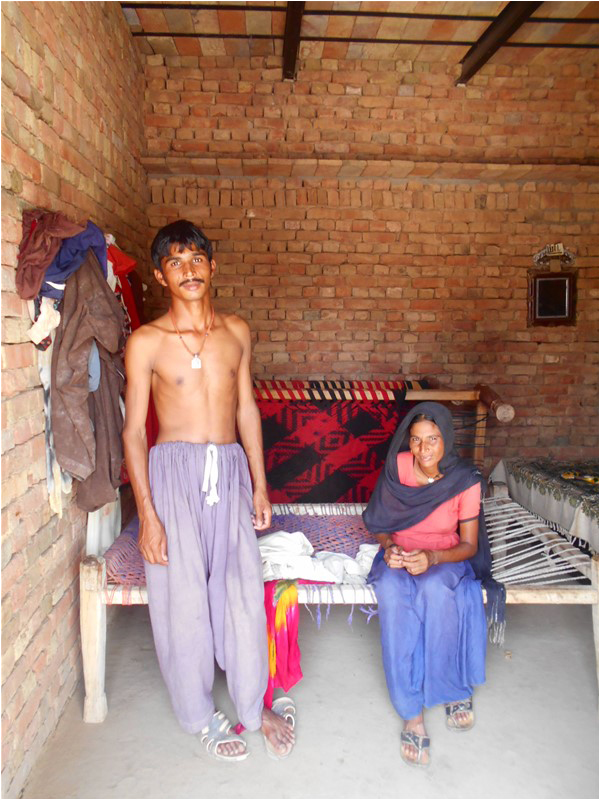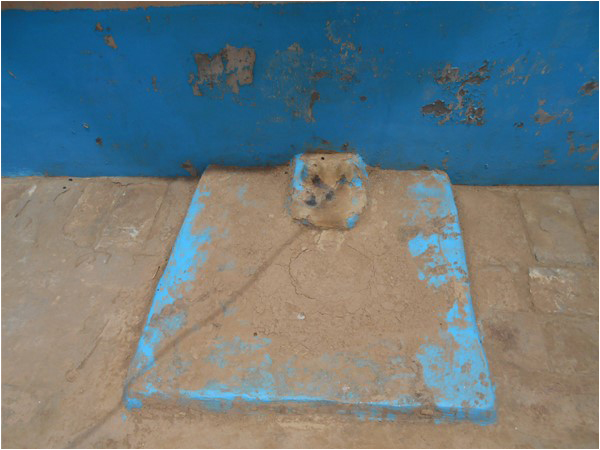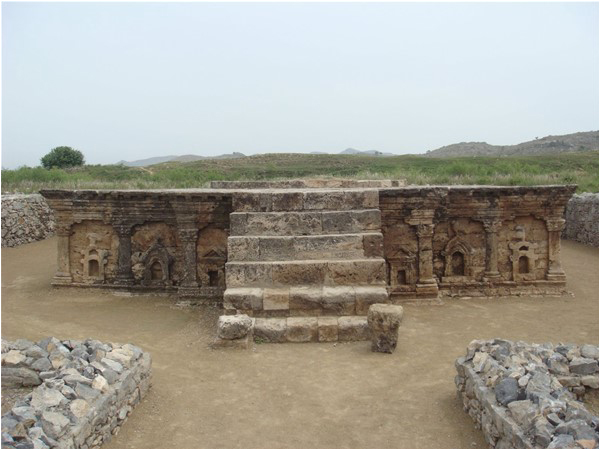NEWS
Pakistan’s Surviving Buddhist Communities in Danger of Extinction

A Baori Buddhist couple from Pakistan. From thefridaytimes.com
Pakistan’s last remaining Buddhist communities are in danger of extinction due to a lack of places to worship, religious teachers, and government support, according to a five-member delegation of Buddhists from Naushahro Feroze District in the province of Sindh, who visited the Gandhara exhibition “Roots or Routes: Exploring Pakistan’s Buddhist and Jain Histories” at the Taxila Museum near Islamabad last week.
The Buddhists noted that while they were happy to visit the exhibition, the future of Buddhism in Pakistan did not look encouraging: “We are pleased to visit this place thanks to the organizers of the exhibition. Although we enjoy complete religious freedom and there is no bar on performing our religious rituals, the religion [Buddhism] in Pakistan is on the verge of extinction due to different reasons,” said Lala Muneer, head of the delegation. (Dawn)
The provincial government of Punjab organized the exhibition, which ran from 5–9 October, in collaboration with UNESCO to promote tourism and interfaith unity and tolerance.
Although the actual number of Buddhists in Pakistan was unknown, Muneer said, about 650 families followed Buddhism throughout rural Sindh, including Ghotki, Sanghar, Khairpur, Nawabshah, and Nowshahro Firoz. However, they were unable to practice their religious rites because there were no temples or stupas. “We perform our rituals, events, and festivals at our homes,” he added. (Dawn)

A Buddhist place of worship in a Pakistani home, with a moorat
—a representation of the Buddha. From thefridaytimes.com
Another member of the Buddhist delegation, Juman, explained that they conducted their rituals based on legends, old customs, and the few Sindhi-language publications available to them because there were no monks to teach religious doctrines and practices for the next generation.
Juman expressed hope that the government would build a temple for the country’s Buddhists and bring in a Buddhist monk from overseas to teach the community. He added that most Pakistani Buddhists had never visited Taxila or other Buddhist sites in Khyber Pakhtunkhwa, particularly Takht-i-Bahi, due to a lack of financial resources.
“I have come to Taxila for the first time and got the darshan (visual observance) of Lord Buddha for the first time as I have seen him earlier in pictures,” said 18-year-old Vitrant Raj, who visited the ruins of Taxila for the first time. Raj expressed happiness at viewing the ancient location where Buddhism had once flourished.
According to Dr. Nadeem Omar Tarar, executive director of Pakistan’s Centre for Culture and Development (CCD), the religious heritage of world communities that once thrived in Taxila was eclipsed by demographic shifts at the time of independence. Tarar said that communities which were custodians of the Buddhist heritage of Pakistan had been unaware of the significance of the wonderful heritage that deserved to be recognized and appreciated.
Most of Pakistan’s Buddhists live in Sindh Province and areas such as the Rohi region of South Punjab. However, there is a dearth of accurate data on the exact number of Buddhists, some of whom have reported experiencing discrimination, physical violence, and the destruction of their property.

A stupa in Sirkap, near Taxila. From thefridaytimes.com
Lala Rajoo Raam, a local representative of Baori Buddhists and the only person in his village with a matriculation-level education, expressed concern about his community: “Most of the people in our community do not have CNICs [computerized national identity cards]—how could you expect any citizens’ rights? Our population is exceeding 16,000 persons but in papers it is far less than that figure.” (The Friday Times)
Raam also said that a fundamentalist Hindu attack on a mosque in Babri, India, had led to a revenge attack by extremist Muslims on his local Buddhist temple. “As you know, here in Bahawalpur City, many Hindu temples became targets for revenge. In that process, our temple was also demolished. After this we never built our temple again. We have good and friendly relations with the Muslims of neighboring villages. I think making ourselves a temple could cause conflict and might encourage hatred against us. We have a moorat as a symbol of [the] Buddha in every home. We also celebrate Holi and Dewali each year. We gather each year at Baba Ghoosai—the place where every year we mark our religious festivals.” (The Friday Times)
See more
Number of practicing Buddhists in Pakistan dwindling (Dawn)
Meeting Pakistan’s Buddhists (The Friday Times)
Gandhara Festival Underway (The News)
Related news reports from Buddhistdoor Global
Thai Buddhist Delegation Visits Heritage Sites in Pakistan
Ancient Buddhist Rock Carvings in Pakistan Vandalized
Archaeologists Unearth Ancient Buddhist Complex in Pakistan
Four Arrested in Pakistan for Destroying 1,700-year-old Buddha Statue
Related features from Buddhistdoor Global
Self-reflection in Kashmir
Takht-i-Bahi: The Jewel of Pakistan’s Cultural Heritage
Pakistan, Sri Lanka, and Nepal: A New Bloc of Buddhist Communication?
Diplomacy, Heritage, and Cultural Pride: Reviving the Buddhist Legacy of Islamic Pakistan














